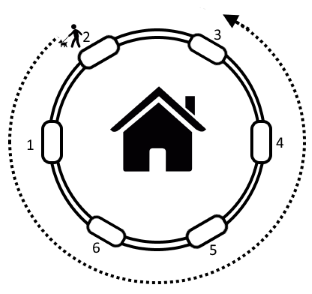Round House
Vasya lives in a round building, whose entrances are numbered sequentially by integers from 1 to n. Entrance n and entrance 1 are adjacent.
Today Vasya got bored and decided to take a walk in the yard. Vasya lives in entrance a and he decided that during his walk he will move around the house b entrances in the direction of increasing numbers (in this order entrance n should be followed by entrance 1). The negative value of b corresponds to moving |b| entrances in the order of decreasing numbers (in this order entrance 1 is followed by entrance n). If b = 0, then Vasya prefers to walk beside his entrance.
 Illustration for n = 6, a = 2, b = - 5.
Illustration for n = 6, a = 2, b = - 5.
Help Vasya to determine the number of the entrance, near which he will be at the end of his walk.
The single line of the input contains three space-separated integers n, a and b (1 ≤ n ≤ 100, 1 ≤ a ≤ n, - 100 ≤ b ≤ 100) — the number of entrances at Vasya's place, the number of his entrance and the length of his walk, respectively.
Print a single integer k (1 ≤ k ≤ n) — the number of the entrance where Vasya will be at the end of his walk.
6 2 -5
3
5 1 3
4
3 2 7
3
NoteThe first example is illustrated by the picture in the statements.